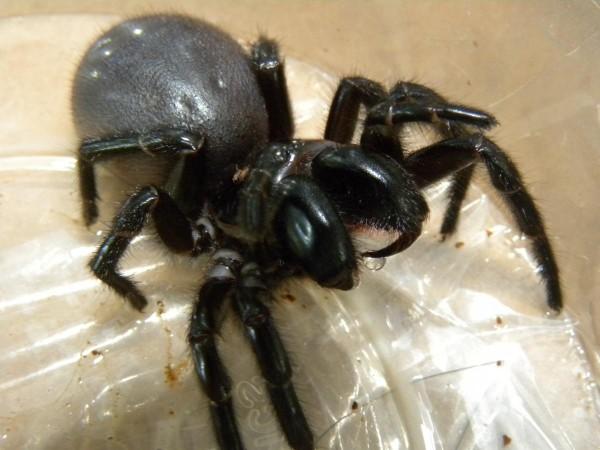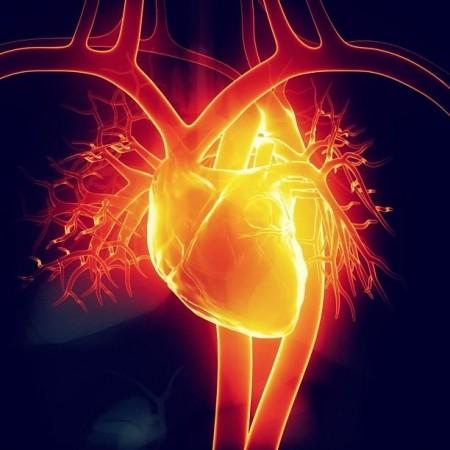With painful bites and reputations for possessing toxic venoms, spiders strike terror across the world. But what if the venom of one of the most feared species could repair the human body instead of causing damage to it? According to scientists, the venom of the Fraser Island funnel-web spider can do exactly that. A new study has found that a drug developed from protein found in the venom of the spider can prevent damage to the heart.
In a multi-institutional Australian study, researchers found that a drug derived from the protein Hi1a—which is present in the funnel-web spider's venom was able to prevent damage caused to the heart following a heart attack. It did so by blocking the transmission of the 'death signal' that is transmitted to cardiac cells after a heart attack. The findings of the study may also help extend the life of donor hearts meant for organ transplants.
"This will not only help the hundreds of thousands of people who have a heart attack every year around the world, it could also increase the number and quality of donor hearts, which will give hope to those waiting on the transplant list," said Dr. Peter Macdonald, corresponding author of the study, in a statement. The findings were published in the journal Circulation.
Complexly Toxic Venom

Australian funnel-web spider(s) or Atracidae are a family of spiders that are native to Australia. They consist of three genera that are composed of nearly 40 species. Concentrated mostly across the eastern coast of Australia, most species are medium to large in size. While not all species are dangerous, some—such as the Sydney funnel-web spider (Atrax robustus)—are known for their fast-acting and highly toxic venoms. The venom of Fraser Island funnel-web spider is the latter.
Like most venoms in Atracidae, Fraser Island funnel-web spider's venom is complex. It contains over 3000 molecules. The current study builds on previous work by Dr. Glenn King, lead author of the study. It was discovered that a protein molecule— Hi1a—found in the spider's venom was able to promote significant improvement in recovery from strokes.
"We discovered this small protein, Hi1a, amazingly reduces damage to the brain even when it is given up to eight hours after stroke onset. It made sense to also test Hi1a on heart cells, because like the brain, the heart is one of the most sensitive organs in the body to the loss of blood flow and lack of oxygen," desribed Dr. King.
Preventing Damage to Heart

Heart attack or myocardial infarction leads to irreversible damage of cardiac tissues. Currently, there are no drugs that can prevent damage caused to the heart cells. Explaining the damage-inflicting mechanism, Dr. Nathan Palpant, lead author of the study, said, "After a heart attack, blood flow to the heart is reduced, resulting in a lack of oxygen to heart muscle. The lack of oxygen causes the cell environment to become acidic, which combine to send a message for heart cells to die."
This 'death signal' serves as the crucial cause of damage to cardiac cells. Therefore, the team tested Hi1a's potential to prevent injury to the heart. They used beating human heart cells that were subjected to the heart attack stresses in order to ascertain whether their survival was improved by the drug.
Hi1a was able to disrupt the 'death signal', thereby, averting harm to cardiac tissues. "The Hi1a protein from spider venom blocks acid-sensing ion channels in the heart, so the death message is blocked, cell death is reduced, and we see improved heart cell survival," stated Dr. Palpant.
Potential to Transform Heart Care

While the authors found that Hi1a can prevent heart damage, it can also potentially benefit donor hearts meant for transplants. Dr. Macdonald illustrated that a donor heart cannot be used if it has ceased beating for over 30 minutes. Therefore, extending this window can play a determining role in the use of a heart and its potential to save a life.
"The survival of heart cells is vital in heart transplants — treating hearts with Hi1a and reducing cell death will increase how far the heart can be transported and improve the likelihood of a successful transplant," emphasized Dr. Macdonald. According to Dr. King, this can serve as a game-changer in rural areas where patients and treating hospitals are separated by long distances.
Expressing hope about the protein's potential to transform cardiac care, Dr. King expressed, "For heart attack victims, our vision for the future is that Hi1a could be administered by first responders in the ambulance, which would really change the health outcomes of heart disease. Buoyed by the promising results of the study, the scientists are looking forwarding to conducting human trials for heart disease and stroke within the next few years.














